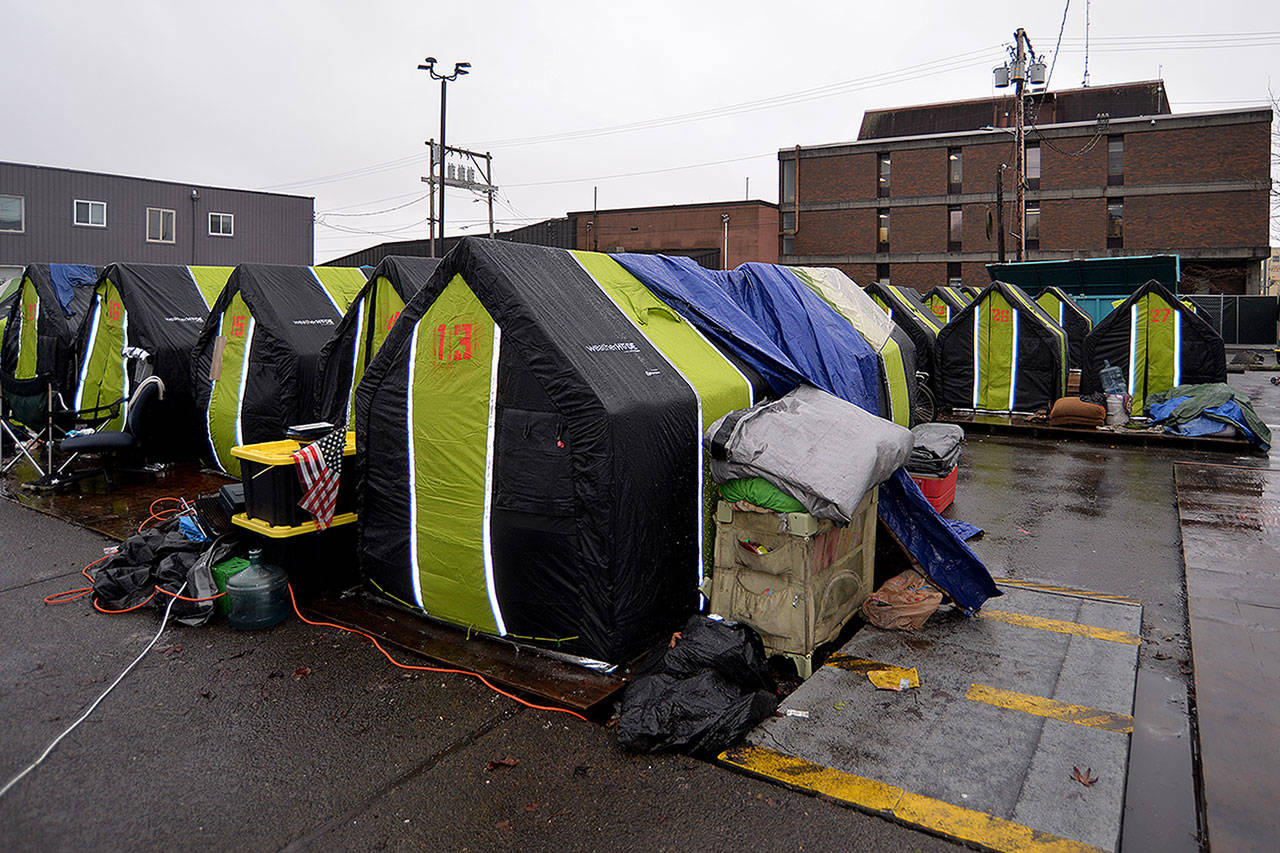Because the City of Aberdeen has what is considered a suitable place for the city’s homeless to go, Monday’s announcement by the Supreme Court that it would not hear an appeal of the Ninth Circuit Court ruling on the Boise V. Martin case will have little impact on the city’s current handling of the homelessness issue.
Boise V. Martin arose from a lawsuit involving seven homeless people who were cited for camping on public property in Boise, Idaho. The appeals court in 2018 said that prosecuting people for sleeping on the sidewalk when there are not enough shelter beds or housing was unconstitutional.
“This is a maintenance of the status quo for sure,” said Aberdeen Mayor Erik Larson.
Earlier this year, the city filed a “friend of the court” brief siding with the City of Boise in its efforts to get the country’s highest court to take on the appeal. Both Larson and Aberdeen Mayor-elect Pete Schave expressed disappointment in the Supreme Court’s announcement.
“It’s unfortunate this case didn’t rise to the level of importance for the Supreme Court to take on the appeal this session,” said Larson. “It is a great disappointment, because what we have in place right now is really unworkable.”
Shave said, “My first thought is I’m disappointed that society is allowing the courts to create law.”
Here is a link to the City of Aberdeen’s friend of the court brief: https://bit.ly/36G4imT
The ruling doesn’t affect the city’s ability to enforce its own camping and sit/lie laws, which prohibit camping on city sidewalks between 6 a.m. and 11 p.m. Previous court rulings said the city can enforce those laws because it has provided another place for the homeless to go, the current City Hall tent camp.
The Boise v. Martin ruling by the 9th Circuit limits what cities can legally do to develop and enforce laws to deal with homelessness, “at a tremendous expense” to the city, said Schave.
In late October, the Aberdeen City Council voted to approve funding for the extension of the City Hall tent camp through March 15, 2020. The cost to the city to operate the camp since it opened in mid-July will approach $260,000.
The City Hall camp does not exist simply because the federal courts mandate it, said Larson. But under current federal rulings, if the city does not provide a place for the homeless to go it would further interfere with the city’s ability to deal with conflicts between the homeless, businesses and citizens.
“If the (City Hall camp) didn’t exist we’d have all those individuals with nowhere to go, and with current case law we would have no ability” to enforce laws prohibiting the homeless to go “anywhere they please.”
Court decisions have severely limited what any city can do when trying to balance the rights of the homeless, as determined by federal courts, and those of its citizens and businesses.
“The challenge is, municipalities really have a gun to their head,” said Larson. “Do we want to have a shelter or have (the homeless) go wherever they want and not be able to do anything about it?”
The City Hall camp remains the best decision for the city, said Larson.
“I think the decision remains to have an alternative place for the homeless to go, with reasonable restrictions on conduct, and have some capacity to move people from areas where they interfere with commerce and peoples’ right to enjoy public spaces,” said Larson.


